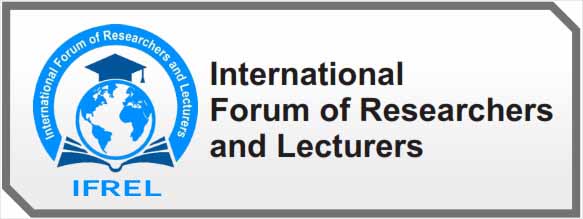Problems of Business Education in Junior High Schools (SMP): Systematic Literature Review (SLR)
DOI:
https://doi.org/10.55606/bijmt.v3i2.1390Kata Kunci:
Business Education, Junior High School, Social Sciences.Abstrak
This study aims to determine the problems of implementing business education in social studies as an implementation of entrepreneurship at the junior high school level. This study uses the Systematic Literature Review (SLR) method by collecting and analyzing journals related to keywords. Based on the literature study conducted, it was found that there was still a lack of understanding of junior high school students in the concept of business education in social studies lessons, because the delivery of material was often not accompanied by existing examples and too much material was presented. In addition, students are less motivated to look for reference materials related to the material provided. Based on the analysis of the subject syllabus in social studies, the material taught is too dense but lacks depth and the expected competencies are not clear. In addition, learning activities are still centered on the teacher. The results of the analysis of reference books to see the contents of the material, especially the main economic activity material. How the material is presented, examples, practice questions, and assignments in accordance with the existing subject syllabus. After the basic economic activity reference book is reviewed as teaching material in accordance with the syllabus that has been developed.
Referensi
Anshori, S. (2016). Kontribusi Ilmu Pengetahuan Sosial dalam Pendidikan Karakter. Edueksos: Jurnal Pendidikan Sosial & Ekonomi, 3(2).
Arikunto, S. (2021). Dasar-dasar Evaluasi Pendidikan Edisi 3. Jakarta: Bumi Aksara.
Asrofi, M., & Mustikawati, E. (2020). Menumbuhkan Literasi Keuangan Melalui Progam Market Day di SDIT Lukman AlHakim Internasional. AN NUR: Jurnal Studi Islam, 12(2), 185-208.
Baroroh, K., Munadi, S., & Hidayah, N. (2016). Pemberdayaan Pengrajin Batik Kayu Menembus Pasar Ekspor Menuju Ekonomi Kerakyatan. SEMAR (Jurnal Ilmu Pengetahuan, Teknologi, dan Seni bagi Masyarakat), 4(2).
Evizariza, E., Hermansyah, H., & Juswandi, J. (2017). Nilai Agama dan Nilai Ekonomi yang Terdapat Pada Permainan Rakyat “Seluncur” Di Desa Pengalian, Kenegarian Koto Rajo, Kecamatan Kuantan Hilir, Kabupaten Kuantan Singingi. Jurnal Pustaka Budaya, 4(1), 1-8.
Faidah, N., Harti, H., & Subroto, W. T. (2018). Pengaruh Pengalaman Ekonomi, Kontrol Diri Serta Pendapatan Siswa Terhadap Perilaku Ekonomi Siswa Sma Di Kecamatan Pasir Belengkong Kabupaten Paser. Jurnal Ekonomi Pendidikan dan Kewirausahaan, 6(1), 59-82.
Faidah, N., Harti, H., & Subroto, W. T. (2018). Pengaruh Pengalaman Ekonomi, Kontrol Diri Serta Pendapatan Siswa Terhadap Perilaku Ekonomi Siswa Sma Di Kecamatan Pasir Belengkong Kabupaten Paser. Jurnal Ekonomi Pendidikan dan Kewirausahaan, 6(1), 59-82.
Fiqriyah, R., & Wahyono, H. (2016). Pengaruh pengelolaan uang saku, modernitas, kecerdasan emosional, dan pemahaman dasar ekonomi terhadap rasionalitas perilaku konsumsi siswa kelas X IIS MAN 1 Malang. Jurnal Pendidikan Ekonomi (Economic Education Journal), 9(1).
Gunawijaya, R. (2017). Kebutuhan Manusia dalam Pandangan Ekonomi Kapitalis dan Ekonomi Islam. Jurnal Al-Maslahah, 13(1).
Habeahan, S. (2015). Analisis Pendidikan Bermakna dan Transformasi Sosial Budaya. ESENSI: Jurnal Manajemen Bisnis, 18(1), 64-71.
Islam, S. (2017). Karakteristik pendidikan karakter; menjawab tantangan multidimensional melalui implementasi Kurikulum 2013. EDURELIGIA: Jurnal Pendidikan Agama Islam, 1(1), 89-100.
Istiqomah, L. (2016). Dinamika Perubahan Kurikulum: Kebijakan Perubahan Kurikulum 2013 Paud. Golden Age: Jurnal Ilmiah Tumbuh Kembang Anak Usia Dini, 1(1), 39-52.
Kartika, D. (2017). The Point of Intersection and Synergy of Islamic Economics and People's Economy. Proceedings of AICS-Social Sciences, 7, 98-106.
Malau, N. A. (2016). Ekonomi Kerakyatan Sebagai Paradigma dan Strategi Baru dalam Pembangunan Ekonomi Indonesia. Jurnal Ilmiah Research Sains, 2(1).
McEachen, WA. 2001. Ekonomi Mikro. Jakarta: Salemba Empat.
McEachen, WA. 2001. Ekonomi Mikro. Jakarta: Salemba Empat.
Nasional, D. P. (2007). Naskah Akademik Kajian Kebijakan Kurikulum Mata Pelajaran Ilmu Pengetahuan Sosial (IPS). Jakarta: Badan Penelitian dan Pengembangan Pusat Kurikulum.
Nurhayati, R. N. R. (2018). Informal Sector as a Pillar of Food Security in Supporting People’s Economy. Jurnal Ekbis (Ekonomi & Bisnis), 6(1), 134-144.
Purnomo, A., Muntholib, A., & Amin, S. (2016). Model Pembelajaran Ilmu Pengetahuan Sosial (IPS) pada Materi Kontroversi (Controversy Issues) di Sekolah Menengah Pertama (SMP) Kota Semarang. Jurnal Penelitian Pendidikan, 33(1), 13-26.
Sanjaya, W. (2015). Perencanaan dan desain sistem pembelajaran. Jakarta: Kencana.
Sucihatiningsih, D. W. P., & Sulistyowati, H. (2006). Faktor-faktor yang Mempengaruhi kesulitan belajar mata Pelajaran IPS Ekonomi. Dinamika Pendidikan, 1(2).
William, james. 2007. The principles of psychology. Vol I. New York: Inc
Zakaria, M. (2018). Kerangka Dasar Dan Struktur Kurikulum Standar Pendidikan Nasional (Analisis Struktur Fungsi). eL-HIKMAH: Jurnal Kajian dan Penelitian Pendidikan Islam, 12(1), 22-30.















